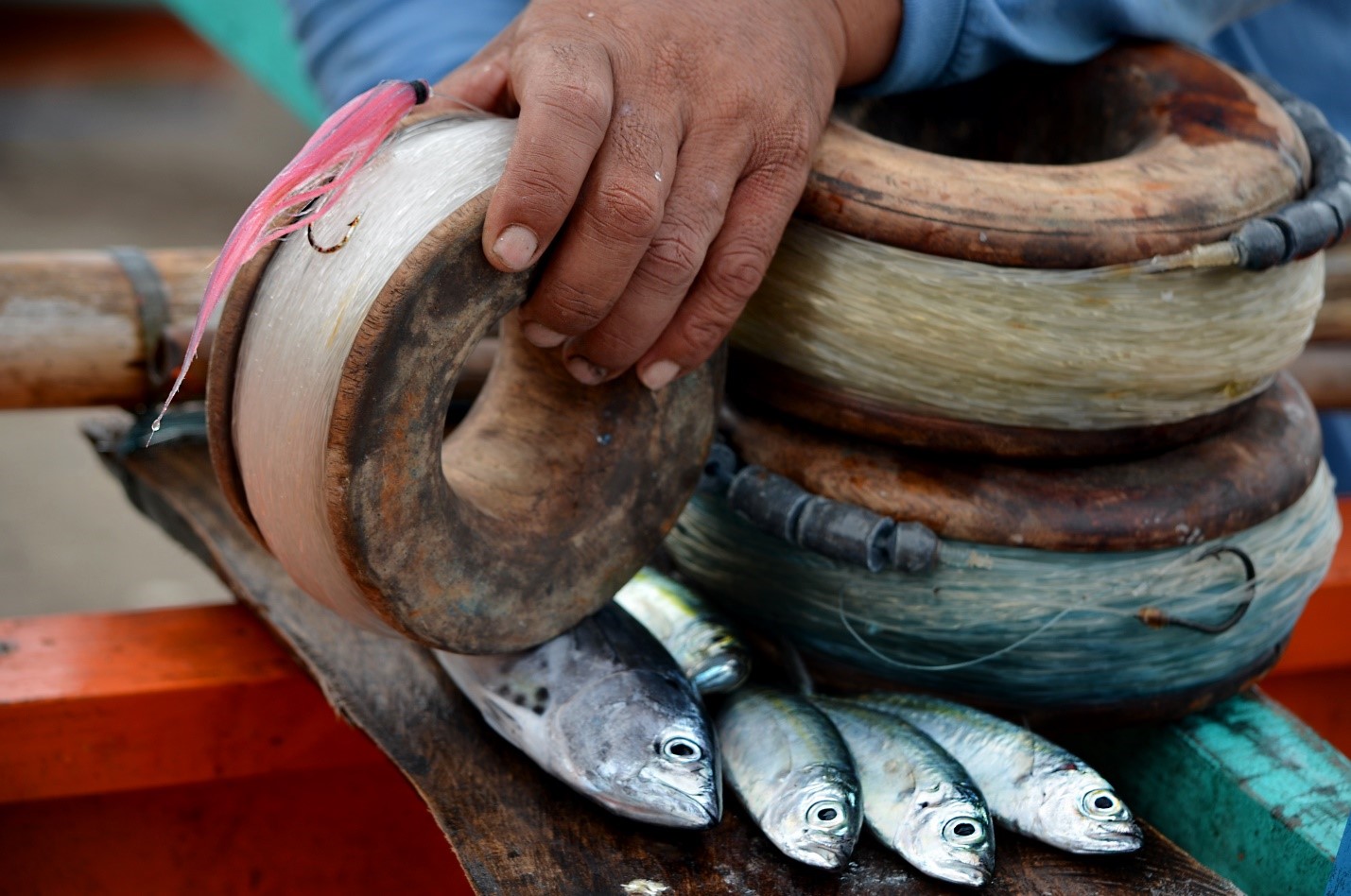From Hook to Cook: Tiding Over Tuna Fishers During the Low Season
August 2018

A yellowfin tuna is graded with a testing rod. Class-A tuna fetches around P300 per kilogram. The rising demand for sashimi in the 1970s spurred the global gold-rush for bluefin, bigeye and yellowfin tuna, which has buoyed the livelihood of millions of people, while depleting the world’s tuna stocks.
For the Philippines, tuna fishing is a seasonal activity – not just because tuna are highly-migratory fish, but because the country sits right at the center of ‘typhoon central’ – an average of 20 typhoons batter the nation yearly, making tuna fishing during the Habagat or southwest monsoon season from June to October a risky proposition.
“The local tuna industry experiences a ‘low season’ because fishers cannot put to sea as frequently during the southwest monsoon, lest they be battered by giant waves and powerful winds. Many fishers resort to taking loans just to tide over their families until they can fish again,” explains Occidental Mindoro provincial economic and development officer Elmer Velacruz.
To help fishers get through this low season, a fisherfolk association in Occidental Mindoro is experimenting with alternative livelihoods.
“Our Paluan tuna fishing association is composed of about 50 fishers, 80% of who regularly make loans from casas, which charge twice what fishers loan. We are putting up the first community-run yellowfin tuna buying station in Occidental Mindoro not just to free ourselves from this system, but to allow us to try different businesses,” says PTFA chairman Quintin Fernando.
The association has established a fishing supply center, a grocery and is planning to dabble in aquaculture by growing prawns and food fish year-round. “By spreading risks, we will have other sources of income even when we cannot fish during the low season. We will no longer need to take expensive and debilitating loans just to feed our families,” adds Fernando.
“Organizing tuna fishers to become entrepreneurs and to think beyond fishing is just another step towards sustainability,” says WWF’s PPTST overall manager Joann Binondo, who leads a team working with nearly 6000 tuna fishers across four provinces in the Mindoro Strait and Lagonoy Gulf.
The Paluan tuna fishers’ association even put up a scholarship fund to secure good education for their children.
“Believe me, we fishers live tough lives. We work hard – low season or not – to ensure our children do not ever need to go through what we have had to,” shares Presentacion tuna fishers’ association vice-chair Narciso Collano.
The World Wide Fund for Nature (WWF) is Earth’s largest conservation organization, tackling environmental issues in over 100 countries. Its Partnership Program Towards Sustainable Tuna (PPTST) is supported by WWF-Germany, BFAR, DEG, Bell, Seafresh, Sainsbury’s, Waitrose, M & S, plus the Local Government Units of Mindoro Occidental, Catanduanes, Camarines Sur and Albay. To know more, follow WWF-Philippines on Facebook.
© Alo Lantin / WWF-Philippines
